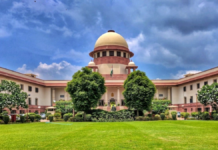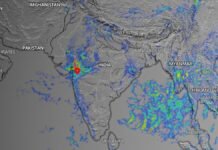
Bengaluru: A state-wide bandh has been called by various pro-Kannada and farmer organizations on Friday, September 29, 2023, to protest against the release of Cauvery water to Tamil Nadu. The bandh, which will last from 6 am to 6 pm, is expected to disrupt normal life, especially in the southern districts of Karnataka, where the Cauvery River flows. The bandh supporters have planned to block highways, toll gates, rail services, and airports across the state.
The bandh has been called by ‘Kannada Okkuta’, an umbrella body of several Kannada groups, including factions of Karnataka Rakshana Vedike, Kannada Chalavali (Vatal Paksha), and many farmers’ associations. They have demanded that the central government intervene in the Cauvery water dispute and stop Karnataka from releasing water to Tamil Nadu. They have also opposed the Mekedatu reservoir project proposed by Karnataka on the Cauvery River, which they claim will affect the water availability for the lower riparian states.
The bandh has received support from various political parties, trade unions, and civil society groups. The opposition parties Bharatiya Janata Party (BJP) and Janata Dal (Secular) have extended their support to the bandh and urged their workers to participate in the protest. The associations of hotels, autorickshaws,s, and car drivers have also announced their support to the bandh and said they will not operate their services on Friday. All shopping malls and movie theaters in the state will also remain closed.
The bandh will affect the education sector as well, as all schools and colleges will remain closed in the Mandya and Bengaluru districts of Karnataka on Friday. The Karnataka Pradesh Private Schools Association has said that they are giving “moral support” to the strike and have asked their members to declare a holiday. The state government has also declared a holiday for all government schools and colleges in these districts.
The bandh organizers have said that they will take out a massive rally from Town Hall to Freedom Park in Bengaluru, where people from all walks of life are likely to join. They have also said that they will try to shut down the Kempegowda International Airport and the Bengaluru Metro Rail Corporation Limited (BMRCL) services. The BMRCL has said that it will run its services as per schedule but will monitor the situation closely.
The Congress government in Karnataka has warned that there is no room for a bandh and permission has been given only for peaceful protests. The state transport department has directed government transport corporations like Bengaluru Metropolitan Transport Corporation (BMTC) and Karnataka State Road Transport Corporation (KSRTC) to continue their services without fail on Friday. The state police chief Alok Mohan has instructed all SPs and DCPs to take action against any forcible closure of shops or disruption of public order.
The Cauvery water dispute is a long-standing conflict between Karnataka and Tamil Nadu over the sharing of the water resources of the Cauvery River, which is a lifeline for both states. The dispute dates back to the British colonial period when two agreements were signed in 1892 and 1924 between the then Madras presidency and Mysore. The dispute escalated after Karnataka started building dams and reservoirs on the river without the consent of Tamil Nadu in 1974. In 1990, the central government set up the Cauvery Water Disputes Tribunal (CWDT) to adjudicate the dispute. The CWDT gave its final verdict in 2007, allocating water among four states – Tamil Nadu, Karnataka, Kerala, and Puducherry. The verdict was challenged in the Supreme Court by both Karnataka and Tamil Nadu. In 2018, the Supreme Court upheld the verdict with some modifications and directed the central government to notify the Cauvery Water Management Scheme. The central government notified the scheme in June 2018, constituting the Cauvery Water Management Authority (CWMA) and the Cauvery Water Regulation Committee (CWRC) to implement the decision.

The CWMA recently directed Karnataka to release 5,000 cusecs of water to Tamil Nadu for an additional 15 days, citing low rainfall in Tamil Nadu’s catchment areas. However, Karnataka contended that it had also received low rainfall and had insufficient water in its reservoirs. Karnataka also sought permission from CWMA to go ahead with its Mekedatu reservoir project, which aims to store and supply water for drinking purposes for Bengaluru city and generate power. Tamil Nadu strongly opposed the project, saying that it would affect its water rights and reduce its share of water from the Cauvery River. Kerala and Puducherry also expressed their reservations about the project. The CWMA dropped the discussion on the project following protests from these states.
The Cauvery water dispute is a complex issue that involves multiple stakeholders and requires a cooperative approach from all parties involved. The bandh called by the pro-Kannada and farmer organizations is a manifestation of the frustration and anger of the people of Karnataka over the perceived injustice and discrimination in the water-sharing arrangement. The bandh may also have political implications, as Karnataka is going to face assembly elections next year. The central government and the CWMA should take steps to resolve the dispute amicably and ensure that the interests of all states are protected. The Cauvery River is a national asset and a source of life for millions of people. It should not become a cause of conflict and violence.





















































